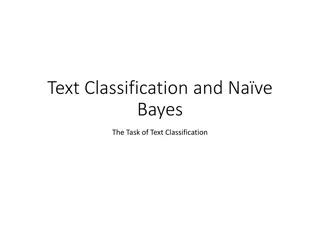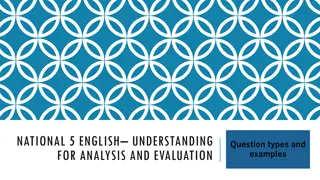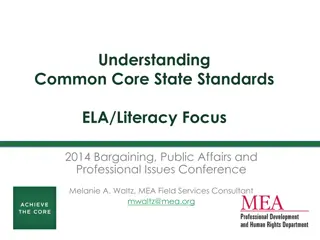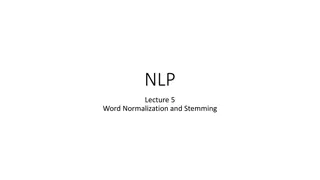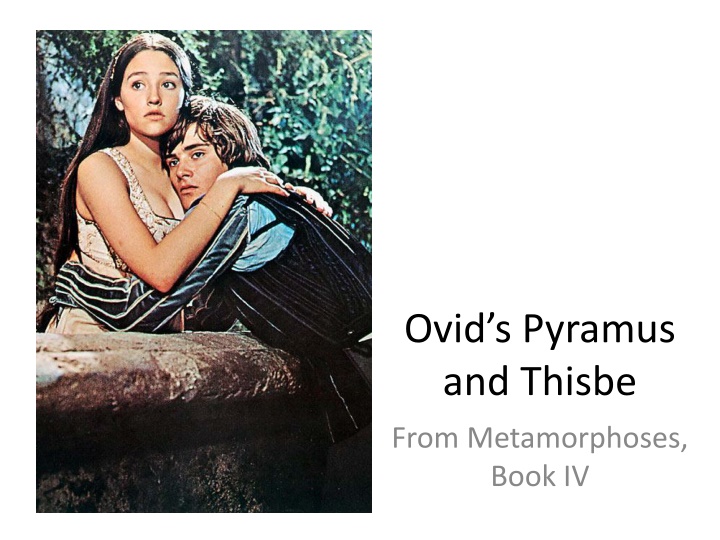
Ovid's Pyramus and Thisbe Analysis and Literary Interpretation
Explore the intricate details of Ovid's Pyramus and Thisbe from Metamorphoses, Book IV, including themes of love, tragedy, and fate. Delve into the poetic nuances, character relationships, and mythical influences portrayed in this timeless story of forbidden love and tragic consequences.
Download Presentation

Please find below an Image/Link to download the presentation.
The content on the website is provided AS IS for your information and personal use only. It may not be sold, licensed, or shared on other websites without obtaining consent from the author. If you encounter any issues during the download, it is possible that the publisher has removed the file from their server.
You are allowed to download the files provided on this website for personal or commercial use, subject to the condition that they are used lawfully. All files are the property of their respective owners.
The content on the website is provided AS IS for your information and personal use only. It may not be sold, licensed, or shared on other websites without obtaining consent from the author.
E N D
Presentation Transcript
Ovids Pyramus and Thisbe From Metamorphoses, Book IV
oriens, orientis, adj = the rising son/ the east; here, substantive praefero, praeferre, praetuli, praelatus = carry in front/ prefer [more] puellis in the 2ndline is abl of comparison contiguus, -a, -um = adjoining/ neighboring What is the person, number, and tense of tenuere in the 3rdline? Where else does this happen? coctilis, coctilis, coctile = baked brick cingo, cingerem cinxi, cinctus = surround/ enclose/ gird; notice how this is formed into a past infinitive in an indirect statement Semiramis = legendary Assyrian queen for whom the Hanging Gardens of Babylon were built notitia, -ae = notice/ acquaintance gradus, gradus = step Ancient Texting Pyramus et Thisbe, iuvenum pulcherrimus alter, altera, quas Oriens habuit, praelata puellis, contiguas tenuere domos, ubi dicitur altam coctilibus muris cinxisse Semiramis urbem. notitiam primosque gradus vicinia fecit, tempore crevit amor; taedae quoque iure coissent, sed vetuere patres: quod non potuere vetare, ex aequo captis ardebant mentibus ambo. conscius omnis abest: nutu signisque loquuntur, quoque magis tegitur, tectus magis aestuat ignis. taeda, -ae = torch coeo, coire, coivi, coitus = fit together/ join Notice the abl abs in the 8th line conscius, conscii = accomplice/ witness nutus, nutus = nod tego, tegere, texi, tectus = cover/ hide Notice the chiasmus in the last line
findo, findere, fidi, fissus = split tenuis, tenuis, tenue = thin rima, -ae = crack fio, fieri, factus sum happen/ be made/ become paries, parietis (m) = wall vitium, vitii = fault/ vice/ sin saeculum, saeculi = age/ generation supply erat with notatum Notice the rhetorical question in the 4th line followed by an apostrophe blanditia, -ae = flattery/ compliment vicis, vicis (f) = turn/ exchange anhelitus, -us = panting/ gasping/ shortness of breath What is the case of invide? fissus erat tenui rima, quam duxerat olim, cum fieret, paries domui communis utrique. id vitium nulli per saecula longa notatum quid non sentit amor? primi vidistis amantes et vocis fecistis iter, tutaeque per illud murmure blanditiae minimo transire solebant. saepe, ubi constiterant hinc Thisbe, Pyramus illinc, inque vices fuerat captatus anhelitus oris, invide dicebant paries, quid amantibus obstas? quantum erat, ut sineres toto nos corpore iungi aut, hoc si nimium est, vel ad oscula danda pateres? nec sumus ingrati: tibi nos debere fatemur, quod datus est verbis ad amicas transitus auris. obstas takes the dat sino, sinere, sivi, situs = allow/ permit pateo, patere, patui = lie open Notice the gerundive in the 3rd last line. It is preceded by ad and has an acc ending. How is it best translated? debere takes the dat transitus, -us = passage/ crossing auris is acc pl; the unfamiliar is ending rather than the expected es is because it is an i stem noun
http://upload.wikimedia.org/wikipedia/commons/thumb/6/61/Thisbe_-_John_William_Waterhouse.jpg/220px-Thisbe_-_John_William_Waterhouse.jpghttp://upload.wikimedia.org/wikipedia/commons/thumb/6/61/Thisbe_-_John_William_Waterhouse.jpg/220px-Thisbe_-_John_William_Waterhouse.jpg Nicholas Iverson, photographer, entitled, Pyramus and Thisbe
nequiquam, adv = in vain quisque here is best translated each one posterus, -a, -um = following Aurora a a metonymy for the Dawn pruinosus, -a, -umm = frosty sicco, siccare = dry coeo, coire, coivi fit together/ join/ went together fallo, fallere, fefelli, falsus = deceive/ cheat/ slip by foris, foris (f) = door/ outdoors excedo, excedere, excessi, excessus = go out (takes abl) tecta in the fifth last line is a synecdoche for the homes of the city neve = literally, or lest , but in better Eng it would mean and so that [they would] not sit is a subjunctive present tense form of sum with the gerundive errandum The gerundive errandum plus a form of sum meaning must , or in this case would the subjucntive is used because it is part of a negative purpose clause Danger in the Dark talia diversa nequiquam sede locuti sub noctem dixere vale partique dedere oscula quisque suae non pervenientia contra. postera nocturnos Aurora removerat ignes, solque pruinosas radiis siccaverat herbas: ad solitum coiere locum. tum murmure parvo multa prius questi statuunt, ut nocte silenti fallere custodes foribusque excedere temptent, cumque domo exierint, urbis quoque tecta relinquant, neve sit errandum lato spatiantibus arvo, conveniant ad busta Nini lateantque sub umbra arboris: arbor ibi niveis uberrima pomis, ardua morus, erat, gelido contermina fonti. bustum, -i = tomb/ grave mound Ninus = an Assyrian king who founded a capital city he named after himself niveus, -a, -um = snow white uber, uberis = fertile/ abundant pomum, pomi = fruit morus, mori (f) = black mulberry tree gelidus, -a, -um = icy conterminus, -a, -um = close by (takes dat)
pactum, pacti = agreement praecipito, praecipitare = throw headlong cardo, cardinis (m) = pole/ axis; part of an abl abs adoperio, adoperire, adoperui, adopertus = cover over tumulum, -i = mound/ tomb caedis, caedis (f) = slaughter/ killing leaena, -ae = lioness bos, bovis = ox/ bull (boum is a rare gen pl construction) spumo, spumare = foam; spumantis here is accpl i stem and agrees with rictus forming what is called the Gk Acc of Part of Body Affected, best translated on oblitus, -a, -um = forgetful/ (here), smeared rictus, rictus = jaws depositura is a future participle, translated going to sitis, sitis (f) = thirst ad radios here is best translated by the rays antrum, antri = cave velamen, velaminis (n) = veil pacta placent; et lux, tarde discedere visa, praecipitatur aquis, et aquis nox exit ab isdem. callida per tenebras versato cardine Thisbe egreditur fallitque suos adopertaque vultum pervenit ad tumulum dictaque sub arbore sedit. audacem faciebat amor. venit ecce recenti caede leaena boum spumantis oblita rictus depositura sitim vicini fontis in unda; quam procul ad lunae radios Babylonia Thisbe vidit et obscurum timido pede fugit in antrum, dumque fugit, tergo velamina lapsa reliquit. ut lea saeva sitim multa conpescuit unda, dum redit in silvas, inventos forte sine ipsa ore cruentato tenues laniavit amictus. labor, labi, lapsus sum = slip saevus, -a, -um = savage conpesco, conpescere, conpescui = restrain/ check/ quench ipsa in the 2nd last line refers to Thisbe cruentatus, -a, -um = bloodstained lanio, laniare = tear/ mangle amictus, amictus = cloak/ clothing
sero, adv = late vestigium, vestigii = footstep pulvis, pulveris (m) = dust tinguo, tinguere, tinxi, tinctus = moisten/ stain Notice the synchysis in the 4th line longa vita is abl of specification Sometimes when you see what looks like a gerundive, without an est or ad or causa, it s actually a future passive participle, best translated going to be , or being gerundive translated with must , for the sake of , or for the purpose of future passive participle translated going to be , or being A Fatal Mistake serius egressus vestigia vidit in alto pulvere certa ferae totoque expalluit ore Pyramus; ut vero vestem quoque sanguine tinctam repperit, una duos inquit nox perdet amantes, e quibus illa fuit longa dignissima vita; nostra nocens anima est. ego te, miseranda, peremi, in loca plena metus qui iussi nocte venires nec prior huc veni. nostrum divellite corpus et scelerata fero consumite viscera morsu, o quicumque sub hac habitatis rupe leones! perimo, perimere, peremi, peremptus = kill/ destroy divello, divellere, divulsi, divulsus = tear apart/ alienate viscer, visceris (n) = entrails rupes, rupis (f) = cliff/ rock
Thisbes here is a Gk genitive haustus, -us = drink accingo, accingere, accinxi, accinctus = gird on/ suroound ile, ilis (n) = gut ferveo, fervere, ferbui = be hot/ burn resupinus, -a, -um = lying on one s back cruor, cruoris (m) = blood/ gore emico, emicare, emicui, amicatus = leap out aliter, adv = otherwise; non aliter often introduces a simile; it also is an example of litotes (double negative) vitio, vitiare = make faulty fistula, -ae = pipe/ tube plumbum, -i = lead eiaculor, eiaculari, eiaculatus sum = shoot forth sed timidi est optare necem. velamina Thisbes tollit et ad pactae secum fert arboris umbram, utque dedit notae lacrimas, dedit oscula vesti, accipe nunc inquit nostri quoque sanguinis haustus! quoque erat accinctus, demisit in ilia ferrum, nec mora, ferventi moriens e vulnere traxit. ut iacuit resupinus humo, cruor emicat alte, non aliter quam cum vitiato fistula plumbo scinditur et tenui stridente foramine longas eiaculatur aquas atque ictibus aera rumpit. arborei fetus adspergine caedis in atram vertuntur faciem, madefactaque sanguine radix puniceo tinguit pendentia mora colore. foramin, foraminis (n) = hole/ fissure ictus, ictus = blow/ strike aer, aeris (m) = air adspergo, adsperginis (f) = spray/ sprinking madefacio,, madefacere. madefeci, madefactus = make wet radix, radicis (f) = root puniceus, -a, -um = scarlet/ crimson morum, mori = mulberry
vitarit is syncopated form of vataverit (perf subj) pres subj = wE EAt cAvIAr imp subj = inf + pers end perf subj = -eri + pers end pluperf subj = -isse + pers end gestio, gestire, gestivi, gestitus = be eager tremebundus, -a, -um = trembling solum, -i = ground Notice in the 4th last line the indirect statement, the synchysis, and the transferred epithet buxum, buxi = boxwood (abl of comparison) instar, undecl = image exiguus, -a, -um = small/ scanty stringo, stringere, strinxi, strinctus = draw tight/ graze The Final Tragedy Ecce metu nondum posito, ne fallat amantem, illa redit iuvenemque oculis animoque requirit, quantaque vitarit narrare pericula gestit; utque locum et visa cognoscit in arbore formam, sic facit incertam pomi color: haeret, an haec sit. dum dubitat, tremebunda videt pulsare cruentum membra solum, retroque pedem tulit, oraque buxo pallidiora gerens exhorruit aequoris instar, quod tremit, exigua cum summum stringitur aura.
remoror, remorari, remoratus sum = delay percutio, percutere, percussi, percussus = beat/ strike plangor, plangoris (m) = outcry lacertus, lacerti = upper arm comas is Gk acc of respect suppleo, supplere, supplevi, suppletus = supply You may have noticed by now that poets sometimes use the plural in Latin, even though the singular would make more sense in English, as in the word vultibus in the 5th line. This is what is called the poetic plural . Where else does this occur in this section? adimo, adimere, ademi, ademptus = withdraw/ take away erigo, erigere, erexi, erectus = raise recondo, recondere. recondidi, reconditus = hide/ conceal/ close again Notice the abl abs in the last line sed postquam remorata suos cognovit amores, percutit indignos claro plangore lacertos et laniata comas amplexaque corpus amatum vulnera supplevit lacrimis fletumque cruori miscuit et gelidis in vultibus oscula figens Pyrame, clamavit, quis te mihi casus ademit? Pyrame, responde! tua te carissima Thisbe nominat; exaudi vultusque attolle iacentes! ad nomen Thisbes oculos iam morte gravatos Pyramus erexit visaque recondidit illa.
ensis, ensis (m) = sword (abl of specification) ebur, eboris (n) = ivory (here understood as the ivory sheath) letum, leti = death estote in the 4th last line is a fut pl imp (fut sing imp = esto) Quae postquam vestemque suam cognovit et ense vidit ebur vacuum, tua te manus inquit amorque perdidit, infelix! est et mihi fortis in unum hoc manus, est et amor: dabit hic in vulnera vires. persequar extinctum letique miserrima dicar causa comesque tui: quique a me morte revelli heu sola poteras, poteris nec morte revelli. hoc tamen amborum verbis estote rogati, o multum miseri meus illiusque parentes, ut, quos certus amor, quos hora novissima iunxit, conponi tumulo non invideatis eodem;
Notice the synchysis in the second line; where else does this occur in this section? pullus, -a, -um = blackish/ dark-colored luctus, luctus = grief/ sorrow mucro, mucronis (m) = sword point imus, -a, -um = deepest/ inmost tepeo, tepere, tepui = be warm permaturesco, permaturescere, permaturui = become ripe rogus, rogi = funeral pyre supersum, superesse, superfui, superfuturus = survive at tu quae ramis arbor miserabile corpus nunc tegis unius, mox es tectura duorum, signa tene caedis pullosque et luctibus aptos semper habe fetus, gemini monimenta cruoris. dixit et aptato pectus mucrone sub imum incubuit ferro, quod adhuc a caede tepebat. vota tamen tetigere deos, tetigere parentes; nam color in pomo est, ubi permaturuit, ater, quodque rogis superest, una requiescit in urna.





